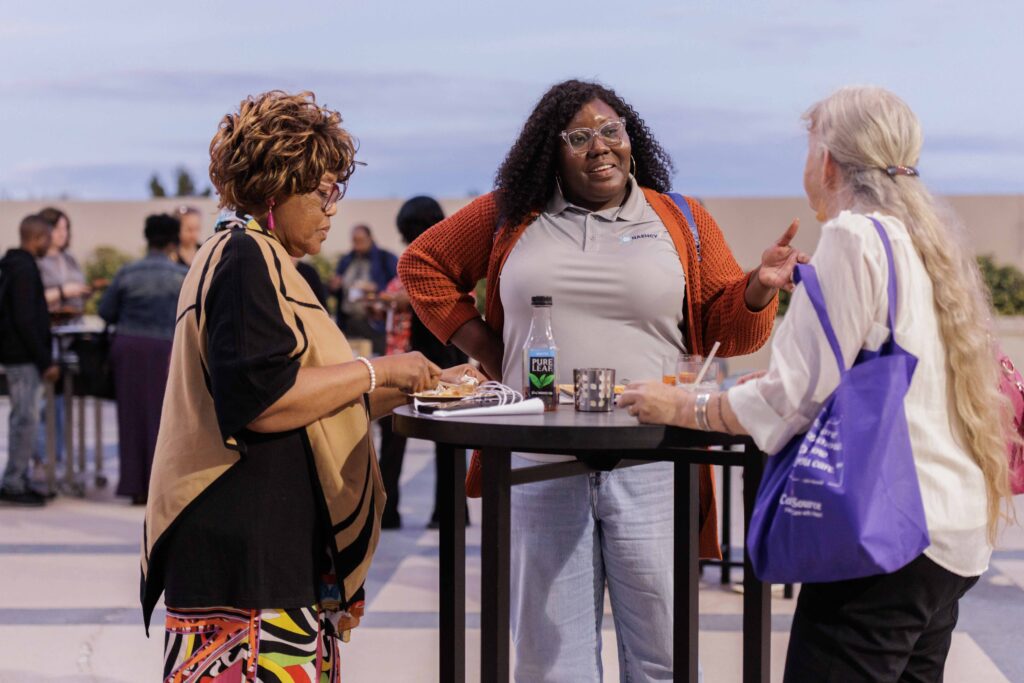For years, the members of NAEHCY have known Lakeshia Allen as a tireless advocate for educational equity and a dedicated champion for students experiencing homelessness. Her insightful contributions as an at-large board member and officer (she is currently Vice President) have made her a respected voice within our community. Lakeshia’s unwavering belief in the power of education to transform lives has consistently inspired us all.
Now, Lakeshia has embarked on a new chapter, one that brings her back to her roots in Hampton, South Carolina, and sees her stepping into the significant role of Magistrate for Hampton County. This transition is not a departure from her life’s work, but rather a powerful convergence of her deep-seated commitment to service, her profound understanding of community needs, and her unwavering pursuit of fairness.

In this candid Q&A, we delve into Lakeshia’s journey to the bench, exploring what inspired this new direction and how her experiences – from supporting vulnerable families and advocating for homeless youth to empowering future leaders through robotics – have uniquely prepared her for this crucial role. Join us as we gain insight into her aspirations as a magistrate, the surprising connections to her work with NAEHCY, and the invaluable perspectives she has already gained.
Her story is a compelling reminder that the pursuit of justice and the unwavering dedication to uplifting others can take many forms, each building upon the last to create a more equitable and compassionate world.
What inspired you to apply for Hampton County Magistrate, or was it they who approached you? If so, what prompted them?
I was actually approached about the position, and I believe it stemmed from my long-standing commitment to public service and community engagement. My work in education, youth development, and family support has always been rooted in fairness, accountability, and advocacy, qualities that also define a good magistrate. There was a recent opening and someone felt that I would have the heart and mindset for justice and fairness, especially for those who often feel overlooked.
What do you hope to learn and achieve as a magistrate?
I hope to gain a deeper understanding of the legal system and how it intersects with the lives of everyday people, especially the vulnerable populations I’ve always served. I want to ensure everyone who comes through my courtroom feels heard and respected. My goal is to be firm but fair, and to make justice accessible, not intimidating.
What does the appointment entail?
As a magistrate, I handle a range of responsibilities including signing warrants, setting bonds, conducting preliminary hearings, and presiding over small claims and traffic court. It requires a strong knowledge of the law, good judgment, and a calm, impartial demeanor.
How does it connect with your other work and the issues which you are passionate about?
This role is a natural extension of the work I’ve always done, such as advocating for youth, families, and marginalized individuals. Whether it was helping students stay in school, supporting first-generation college students, or connecting homeless youth to resources, my passion has always been about giving people a fair shot. Now, I get to do that from the bench.
How does it connect to NAEHCY?
It connects deeply. At NAEHCY, we’re focused on educational access and stability for homeless children and youth. As a magistrate, I now see how the justice system can either be a barrier or a bridge. I want to help bridge the gap between legal issues and access to supportive services, especially for youth and families in crisis. Understanding both systems, education and justice, allows me to advocate more effectively for change.
What have you learned so far / how is it going?
It’s been an eye-opening experience. I’ve learned that the bench carries a weight, but it also holds opportunity. I’ve gained a stronger appreciation for due process and for the everyday realities people face when they show up in court. Every day is a new lesson in compassion, discernment, and service.
Any “wow” moments, new observations, or words of wisdom?
One “wow” moment was seeing how much a calm and respectful courtroom can defuse tension. People often walk in nervous or defensive, but if they’re treated with dignity, it shifts the whole energy. I’ve also realized how powerful it is just to listen. That alone can be healing.
How can NAEHCY members benefit from a better understanding of this work?
Understanding the judicial system helps NAEHCY members better advocate for policies that protect our youth. It also gives insight into how legal barriers impact education and housing stability. With more awareness, we can build stronger cross-sector collaborations; between schools, courts, and community agencies to support students more holistically.
